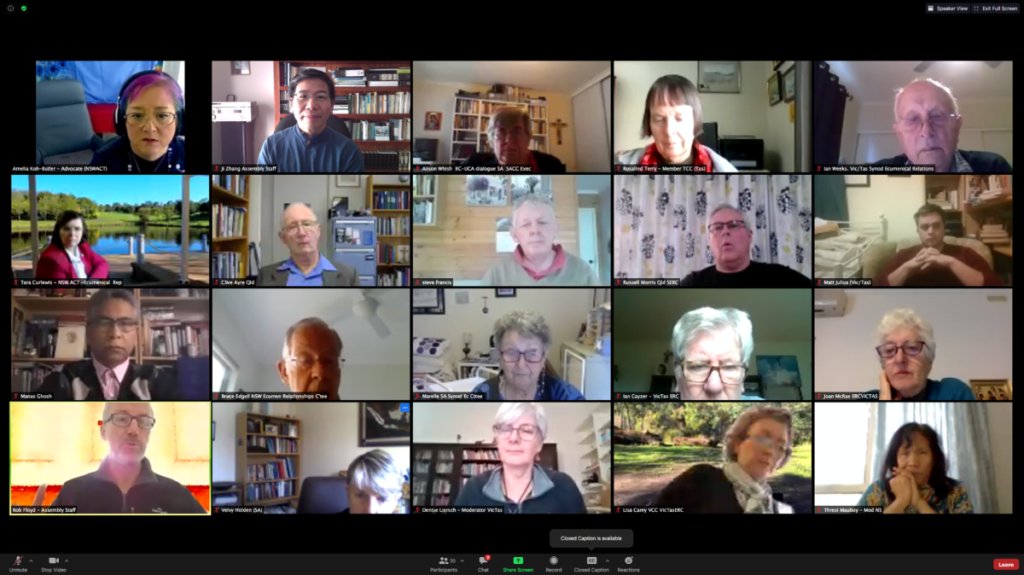Ecumenical Reps Connect and Share

Uniting Church people engaged in ecumenical work gathered via video teleconference for a time of sharing and looking at how we can work together across the Church.
The Assembly organised the meeting on 26 June with people who are involved in ecumenical activities across the Synods and is continuing the conversations in smaller groups.
The meeting was co-chaired by Rev Dr Amelia Koh Butler, Advocate for the Assembly Seeking Common Ground Circle of Interest and Rob Floyd from the Assembly Resourcing Unit with participation from Rev Dr Ji Zhang, Assembly Theologian-in-Residence.
Representatives of each Synod provided an update on the key areas of ecumenical engagement going on within their synod. Participants were divided into small groups to share common themes. These included:
Ecumenical committees:
- Shared passion for ecumenical engagements
- The difficulty of engaging people regionally
- Shifting priorities and inconsistency at Presbytery and Congregational level
- Aging membership of councils
- Do our ecumenical committees and their relationships map with the ecumenical action on the ground?
- Are our ecumenical committees adapting to the changing face of Australia?
Opportunities:
- Chaplaincy is an area where there is significant ecumenical engagement
- Disaster response chaplaincy was an area of increasing and highly valued cooperation
- Much ecumenical activity takes place beyond the formal movement
- Interfaith dialogue is growing in some ecumenical contexts.
- A growing trend to trans-denominationalism rather than intentional ecumenical engagement was observed
- Denominational difference is a lesser concern among young people.
- Ecumenical work on particular themes has worked well – climate change as one example
- Safe Church is a common topic among members of National Council of Churches in Australia.
- Major opportunity is emerging to broaden ecumenical engagements across the Christian spectrum
Challenges:
- Institutional ecumenism is struggling – honouring distinctiveness while finding common ground
- Religious education is mixed. A strong ecumenical factor for some but not for others.
- Young people are not engaged in our current forms of ecumenical work.
As well as the sharing of different experiences, participants considered ways they might work together with suggestions including how Churches might collaborate on Climate Change and receiving the gift of the Uluru Statement and its focus on Voice, Truth and History for First Peoples.
Further meetings are taking place to allow for those important conversations and connections to continue to grow.
RESOURCES:
Read the FULL NOTES from the Ecumenical Relationship Conversations gathering in July
Read the Bishop Michael Putney Memorial Lecture (2015): Forming the Ecumenical Mind, Being Church in a Polarised World from Rev’d Dr Ray Williamson OAM
